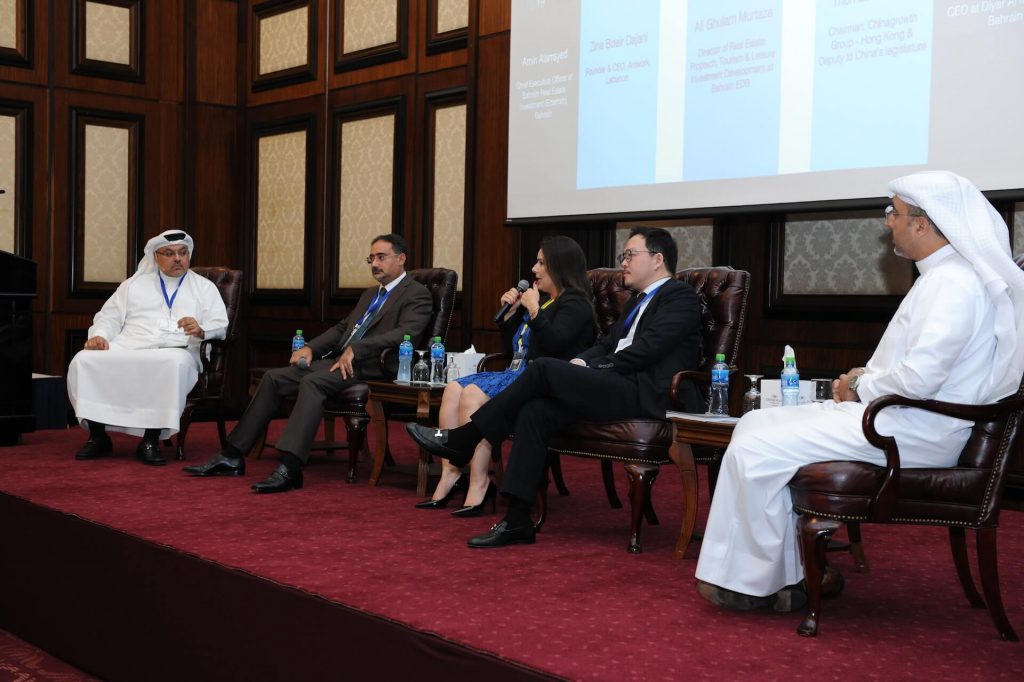The GCC PropTech Time 2019 summit was held in Bahrain on the 17 September 2019. It was organized by HexGn in partnership with the Bahrain Economic Development Board (EDB), the event was sponsored by the industry stalwart Diyar Al Muharraq as the platinum sponsor, and Oxfordcaps, a leading student housing startup based in Singapore and India, as the Gold Sponsor.
This signature proptech event brought together leading experts and decision makers from all sectors of real estate, along with startups and technology companies from 25 plus countries. The event had five roundtable discussion, each focussed on the specific influencers in the real estate lifecycle, in this article we are bringing insights from the Property Developers Roundtable.
Property Developers Roundtable
The Property Developers Roundtable at the GCC PropTech Time Summit 2019 was moderated by Ali Ghulam Murtaza (Director of Real Estate, Proptech, Tourism & Leisure Investment Development, Bahrain EDB). The panellists included Amin Alarrayed (Chief Executive Officer, Bahrain Real Estate Investment – Edamah, Bahrain), Zina Bdeir Dajani (Founder & CEO, Antwork, Lebanon), Thomas Cheung (Chairman, Chinagrowth Group, Hong Kong & Deputy to China’s Legislature), and Ahmed Alammadi (CEO, Diyar Al Muharraq, Bahrain).
Impact of PropTech in Changing Product Offering for Property Developers.
Traditional real estate companies are now focusing on developing their respective regions as investment destinations out of the real estate available. Government agencies in the last few years have been working to collaborate with the private sector, complementing and encouraging them in this process.
The effects of technology have been multi-faceted, while it has done away with several practices in the traditional real estate industry, it has also become an enabler that is helping these companies stand strong in the era of tech-led services. Amin Alarrayed said, “Technology is helping transform experiences. It is helping deliver experiences and products even without needing the customer to step out of their homes” Real estate companies are adopting technologies and offering it as a part of their product and service offerings. They are trying to use technology to help customers enjoy services that are more convenient and economical than conventional options.
Thomas commented on the growth of proptech in China, and he pointed out that there is an issue of affordability in several parts of China when it comes to real estate. The property prices are also higher owing to the lack of habitable land in the region. Property technology can help real estate create achieve its goals of offering better living conditions and a valuable entity to invest in. It can also help in bringing down construction costs as well as help in managing energy needs. Both these areas can play a significant role in helping with the affordability factor. He drew comparisons between the Bahrain and Hong Kong real estate market. Both the markets are excellent gateways for a larger market of real estate, creating excellent entry points for proptech startups wanting to cater to these regions. He stressed on the features of Bahrain that are conducive for proptech growth – excellent access to talent, supportive government, and a strong entrepreneurial community.
Model of Sharing Assets resurrecting Real Estate Markets
Zina Bdeir Dajani spoke about Lebanon’s position in the regional proptech game. She stressed on how sharing economy is helping turn the real estate game in Lebanon to a more positive direction. The real estate industry in Lebanon is not highly sought after by investors, and technology-led developments hold the capacity to change that. She said, “Technology is helping real estate become an accessible asset without the need of owning it. Sharing economy is giving people the opportunity to access spaces, communities, and luxurious projects even with low affordability.” Private initiatives like Antwork is using a wide range of technologies including automation to kindle proptech in the region. Sharing office spaces is becoming more common as large corporates also jump on to the bandwagon. Apart from the cost saving aspect, there are a lot of other advantages of choosing a shared workspace over conventional workspace. Opportunities to network is one of the biggest positive factors advocating for the trend of sharing workspace. Shared spaces are making leasing real estate more practical and less burdensome.
Rounding up the discussion around shared spaces, Amin Alarrayed spoke about how boundaries between places and various aspects of life are blurring. The new technology will help in developing dynamic workspaces that also contribute to the overall well being of those using them. With trailblazers like Diyar Al Muharraq constantly bring tech-driven developments in real estate, Bahrain is also set to take impressive leaps in property technology. The next five years will be crucial in seeing how the proptech landscape will shape up with such players.
